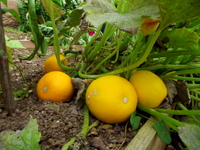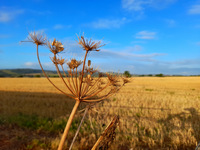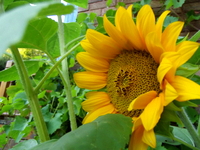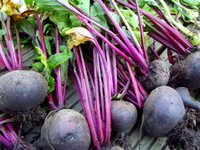 Late summer, or chang xia, is the fifth season in the Chinese calendar, and in my view, the missing one in our own. As we stew in that classic August combination of warmth and humidity, just consider for a moment how different this month feels from June, and you can quickly see why this period in the year justifies its own seasonal division.
Late summer, or chang xia, is the fifth season in the Chinese calendar, and in my view, the missing one in our own. As we stew in that classic August combination of warmth and humidity, just consider for a moment how different this month feels from June, and you can quickly see why this period in the year justifies its own seasonal division.
 In traditional Chinese culture, energy now is considered to be at a stillpoint, or to have plateaued after a peak in June, and before its descent into autumn. We experience this as a sense of restfulness in the world: much of the country seems to be on holiday, and nature too takes time off. Birdsong is less noticeable, now that they have found mates, raised fledglings and left empty nests.
In traditional Chinese culture, energy now is considered to be at a stillpoint, or to have plateaued after a peak in June, and before its descent into autumn. We experience this as a sense of restfulness in the world: much of the country seems to be on holiday, and nature too takes time off. Birdsong is less noticeable, now that they have found mates, raised fledglings and left empty nests.
 Evenings have drawn in by an hour or so. The rays of the sun are more watery compared with that penetrating, almost Mediterranean, overhead brilliance that we see in June in Devon and Cornwall. The exciting, vibrant greens of spring, have given way to darker, mature foliage in woods and in our gardens. Plant and lawn growth has slowed.
Evenings have drawn in by an hour or so. The rays of the sun are more watery compared with that penetrating, almost Mediterranean, overhead brilliance that we see in June in Devon and Cornwall. The exciting, vibrant greens of spring, have given way to darker, mature foliage in woods and in our gardens. Plant and lawn growth has slowed.
 The theme now is about to become one of harvest and abundance: blackberries appear in the hedgerows, and your allotment bears fruit. The corn is tall in the fields. It is a time of reward for your efforts, when nature pays you a return on your investment.
The theme now is about to become one of harvest and abundance: blackberries appear in the hedgerows, and your allotment bears fruit. The corn is tall in the fields. It is a time of reward for your efforts, when nature pays you a return on your investment.
 So what should we draw from all of this? Notice this moment of stillness before we take a little tilt down and autumn appears over the horizon. Soak up some soft rays of lower, August sunshine whilst filling a bowl with blackberries. Make sure you have had a holiday; this is a late opportunity to supplement your reserves ready for the coming winter. Above all, I hope you will find profound enjoyment in the beauty of late summer, and our constantly revolving seasons.
So what should we draw from all of this? Notice this moment of stillness before we take a little tilt down and autumn appears over the horizon. Soak up some soft rays of lower, August sunshine whilst filling a bowl with blackberries. Make sure you have had a holiday; this is a late opportunity to supplement your reserves ready for the coming winter. Above all, I hope you will find profound enjoyment in the beauty of late summer, and our constantly revolving seasons.
